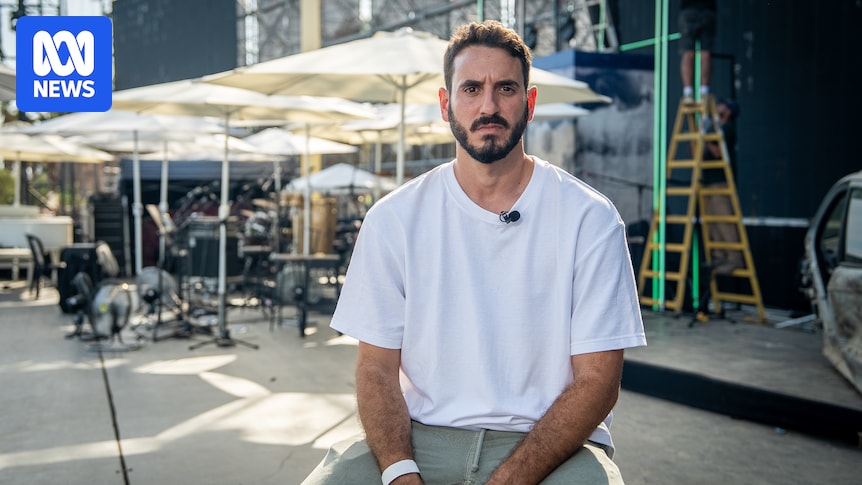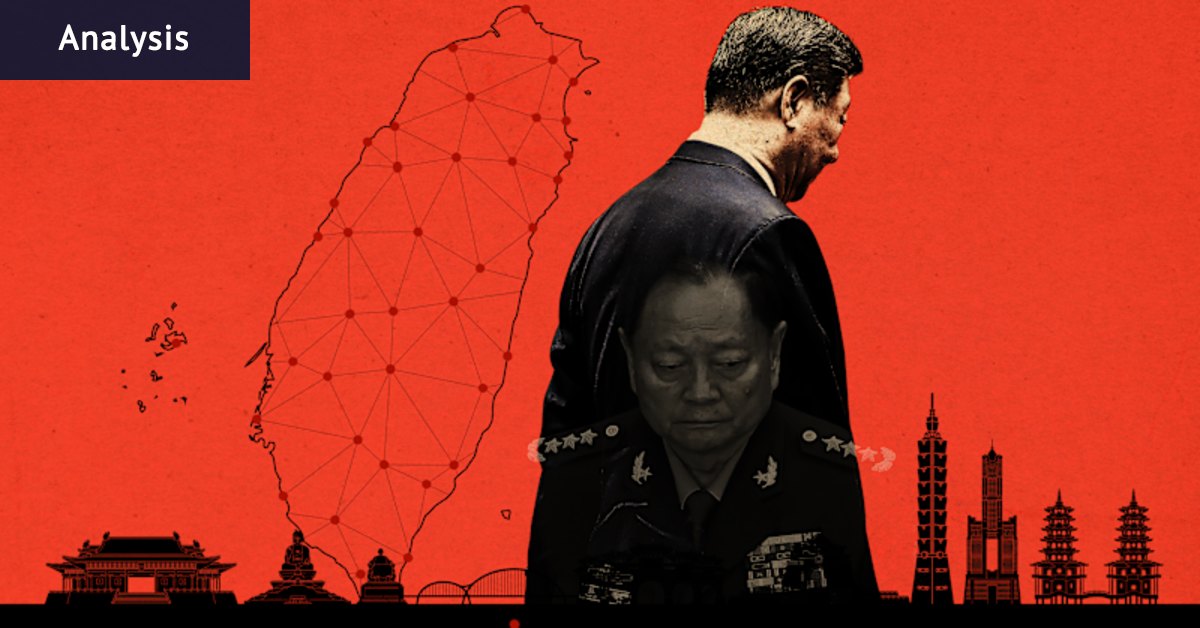
Each year, Yonatan Shamriz and his family gather to celebrate the birthday of his daughter, Yali, who is about to turn four. As much as he tries to make that day as normal as possible for young Yali, it is hard to avoid what it has become. Yali was born on October 7, 2021. Two years later, the community where the Shamriz family lived, Kfar Aza, was overrun by Hamas terrorists. Sixty-two people from the kibbutz were killed that day.
Yonatan’s brother Alon was among the Israelis taken hostage. He never made it home and was mistakenly killed by the Israel Defense Forces (IDF) in Gaza in December 2023 after escaping Hamas’s captivity. “It was the toughest moment in my life,” Yonatan told the ABC. “My brother did everything. They managed to escape. It was so hard to hear that the IDF mistakenly identified them as terrorists.”
Two years on from that moment, Yonatan’s life is still unsettled. “I’m still a refugee in my own country — I don’t have a house, I live in a trailer in the centre of Israel,” he said. “I’m not in my comfort zone. I don’t have a brother.” Despite that trauma, Yonatan has thrown his energy into the organisation Kumu, supporting families affected by the 2023 attacks. It is hosting the country’s only official memorial on October 7, in one of Tel Aviv’s largest parks.
Deep Scars and Societal Shifts
Yonatan, like many Israelis, is aware that society has shifted in the two years since Hamas’s attacks. After infiltrating Israel, militants killed about 1,200 people, most of them civilians, and took 250 hostages, triggering the current war in Gaza. Israel stated its goals were to destroy Hamas and bring back the hostages. However, over time its conduct has been increasingly criticised.
Since October 2023, more than 67,000 Palestinians have been killed, according to health authorities in Gaza, and Israel’s actions have been labelled by a UN independent commission of inquiry and other organisations as genocide. The IDF now controls more than 75 percent of the strip, and virtually all of its more than 2 million residents have been forced to leave their homes.
While not comparable, the toll of war has weighed heavily inside Israel too. Many Israelis support the war, but many are also horrified by it. A growing number of Israeli reservists are refusing to serve in Gaza. At various protests this year, thousands have marched in Jerusalem and Tel Aviv to call for an end to the war.
Political and Social Landscape
The announcement comes as a significant shift to the right has been observed in Israel’s political and social landscape. Tomer Persico, a research fellow from the Shalom Hartman Institute in Jerusalem, argued that the war has dramatically altered the nation. “We’re two years into the war that began in an unbelievable trauma to the Israelis, and really to the Jewish people,” he said. “This raises up memories, post-traumatic scars that we all have from the Holocaust, from pogroms, because this is what happened, right? Whole communities were massacred.”
The Israeli community, Dr. Persico noted, has also embraced traditional Jewish religious ideals. “We’ve seen a lot of people, a lot of circles, return to traditions, adopt traditional customs, some even turn into orthodox Jews,” he said. “And this is, by the way, parallel to what happened after the 1973 Yom Kippur War, also a great trauma.”
‘Occupying’ Gaza the Goal for Some Leaders
All of that combined has made it easier for “fundamentalists” like the country’s far-right finance minister Bezalel Smotrich and national security minister Itamar Ben-Gvir to expand their influence in government and among the population, Dr. Persico said. Australia has imposed sanctions on the two Israeli politicians for “extremist rhetoric advocating the forced displacement of Palestinians and the creation of new Israeli settlements.”
“They have a vision of occupying the Gaza Strip and settling Jews within the Gaza strip, of ethnically cleansing the Gaza Strip from Palestinians,” Dr. Persico said. “That’s their plan, that’s their vision. They believe that God commanded this.”
Dr. Persico insisted that while society has shifted to the right, it does not mean that it is backing the Netanyahu coalition government. “Paradoxically, you’ve got a right shift in the populace, and an antagonism towards the most right-wing government ever to reign over Israel,” he argued.
The Public’s Growing Discontent
Rallies have been held every week for two years, demanding the government accept a deal to end the war. While the prevailing focus of those demonstrations has been the plight of the Israeli hostages held in Gaza, there has been a growth in recent months in people voicing concerns about the humanitarian situation in the strip.
Most Israelis want to end the war. Polling released by the Israel Democracy Institute last week, ahead of the October 7 anniversary, showed 66 percent of Israelis believed it was time to end the war. Beyond that, 64 percent of those surveyed said Mr. Netanyahu needed to take responsibility for the deadly attacks and resign.
Views were split as to whether Israel was in a better security situation, while most conceded Israel’s international standing had deteriorated dramatically.
Despite the United States remaining Israel’s most significant backer, the views of American Jews also appear to have shifted. Sixty-one percent of those surveyed by The Washington Post newspaper believed Israel had committed war crimes against Palestinians in Gaza, and 32 percent believed the US was too supportive of Israel’s conduct.
Economic and Social Impact
Comparing the attitudes of Israelis about the war in Gaza to the recent 12-day war with Iran is telling. During the June war, when Israel launched strikes on Iranian nuclear and military targets and faced a barrage of hundreds of missiles in retaliation, many Israelis speaking to the ABC at the time believed the military offensive was justified.
The conflict also appears to have affected Israel’s migration and population growth. Data presented to Israel’s parliament, the Knesset, showed 82,700 Israelis left the country in 2024 — a 50 percent increase from the previous year. Almost half of those who left were born overseas and had moved to Israel at some point. Despite the exodus, overall the country’s population increased in 2023.
The streets of Jerusalem are much quieter than they were prior to October 7, 2023. Tourists still flock to the Holy City, but in nowhere near the numbers they did before the war. While foreigners, a major source of income for the city, are staying away, some business owners believe locals are also much more reserved than they once were.
“People are tired. People don’t believe now in the situation that it’s going to be good,” Meir Micha said. He has been running his restaurant in the centre of Jerusalem’s commercial district for more than 50 years.
“In the war, everybody wants peace in the end. It depends on how you find the peace. Nobody can want to fight all his life,” Mr. Micha added.
As Israel navigates these challenging times, the nation remains at a crossroads, with its people yearning for peace and stability amidst ongoing conflict and political upheaval.







